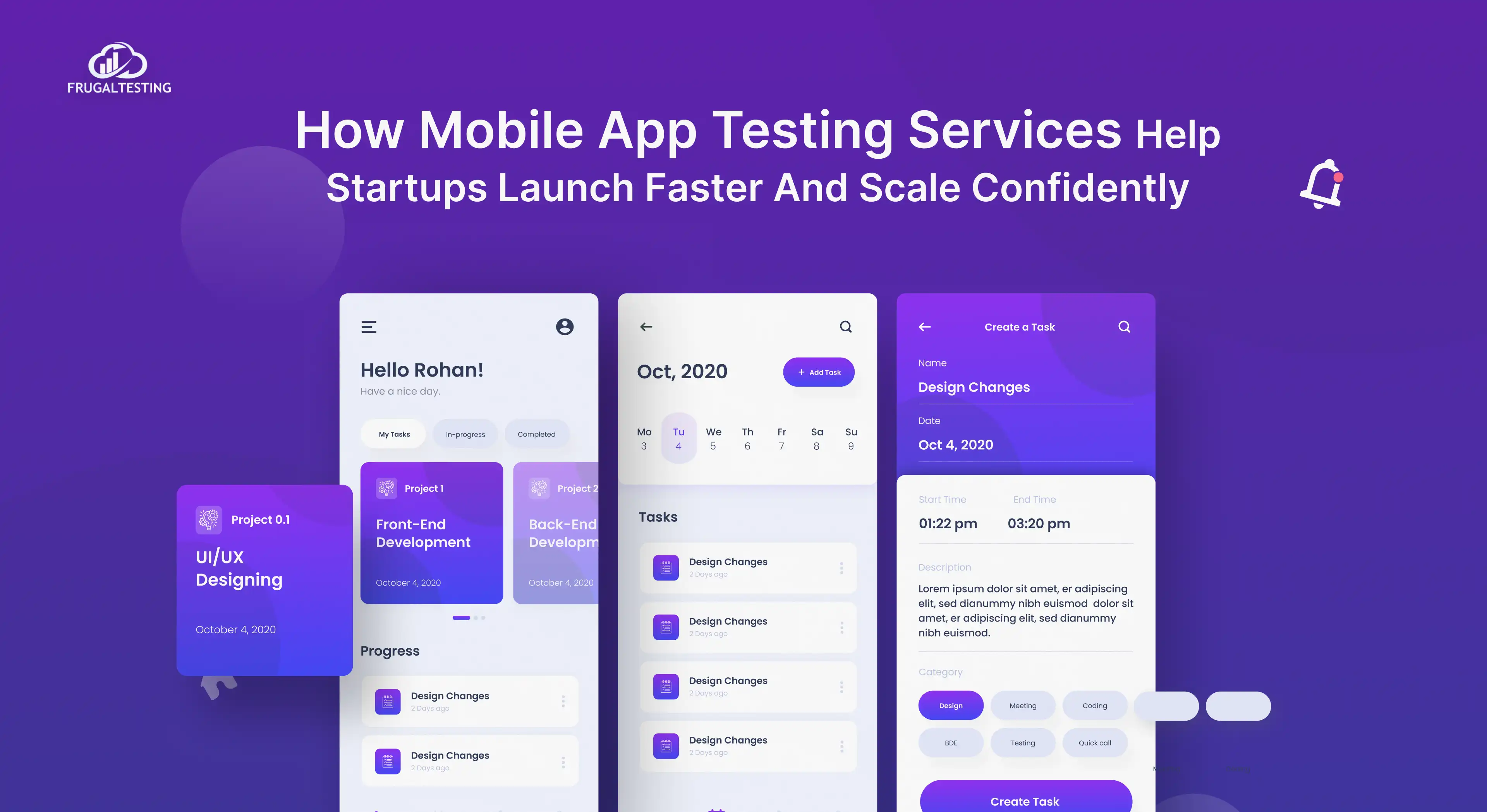Booking.com is one of the world’s leading Online Travel Agencies (OTAs), serving millions of travelers daily. With its role as both a meta-search engine and a booking platform, ensuring seamless performance is critical. From revenue management to AI-powered trip planning, the platform leverages advanced machine learning (ML models), recommender systems, and robust quality assurance (QA) testing to deliver a smooth and reliable experience. In this blog, we’ll explore how Booking.com uses AI, generative AI, and software testing services to maintain high performance and enhance user experience.
💡 Keep Reading to Explore
📌 How Booking.com uses meta-search to enhance travel planning
📌 Role of AI and generative AI in personalized recommendations
📌 Importance of QA, performance, and load testing
📌 Optimizing partner revenue with metrics like Net ADR and RevPAR
📌 Future trends in AI-driven travel platforms and test automation
What is a Meta Search Engine and How Booking.com Uses It
A meta-search engine works much like a flight booking application, where users can instantly compare multiple options from different providers in one place. Instead of visiting separate hotel or airline sites, travelers see aggregated results, saving time while ensuring better choices. For Booking.com, this model is especially powerful because it showcases millions of accommodations, flight options, and packages on a single platform, making the search experience both fast and transparent.
The company leverages its meta-search framework to generate a wide variety of listing views, ensuring that travelers find properties suited to different budgets, locations, and travel preferences. This directly enhances conversion rates, as customers are more likely to book when they can see competitive offers side by side.
From the partner side, Booking.com integrates dynamic pricing strategies to balance competitiveness with profitability. By monitoring key revenue metrics such as Net ADR (Average Daily Rate) and Net RevPAR (Revenue per Available Room), the platform helps hotel partners optimize their pricing and inventory. This ensures better yield management, improved booking volume, and a win-win situation where travelers receive value while partners maximize returns.
What is Meta Search and Its Benefits?
A meta-search engine aggregates results from multiple booking platforms, allowing travelers to compare prices, availability, and options in one place. Unlike a standard search engine, it does not sell directly but connects users to providers.
- Provides real-time comparison of hotel, flight, and car rental options
- Improves conversion rate by helping users find the best deals quickly
- Reduces language barriers in travel planning through global reach
- Acts as a ranking platform for travel services
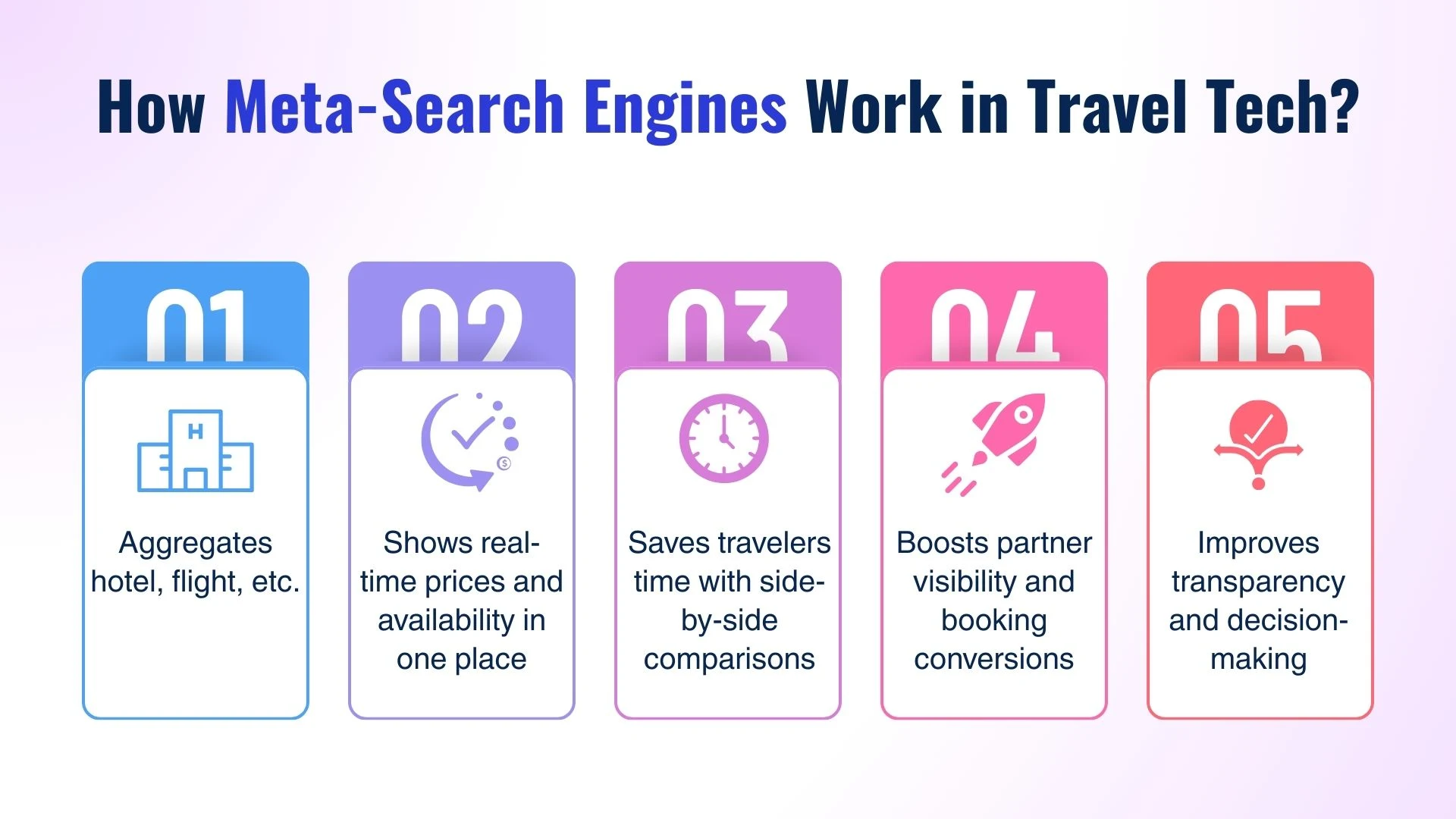
Booking.com as an OTA with Meta-Search Features
Booking.com is primarily an online travel agency (OTA) but also incorporates meta-search-like functionality. The platform enables travelers to compare Booking.com discount codes, deals, promo offers, and partner rates in real-time, making it easier to secure the best value without leaving the site. Unlike pure meta-search engines such as Kayak or Skyscanner, which redirect users to external providers, Booking.com typically processes reservations directly, positioning itself as an OTA enhanced with meta-search features rather than a standalone meta-search platform.
Key aspects include
- AI adaptive learning for personalized results: The platform uses AI to analyze user preferences and past behaviors, delivering tailored recommendations that improve the overall booking experience.
- Revenue management optimization: Advanced algorithms monitor metrics like Net ADR and Net RevPAR, ensuring hotels maximize profitability while maintaining competitive pricing.
- Loyalty enhancement through features like the Genius Deal: Exclusive offers and targeted promotions encourage repeat bookings and foster long-term customer engagement.
- Hybrid OTA and meta-search approach: By combining the strengths of Online Travel Agencies with meta-search capabilities, Booking.com creates a robust availability search engine that improves conversion rates while providing travelers with diverse, high-quality options.
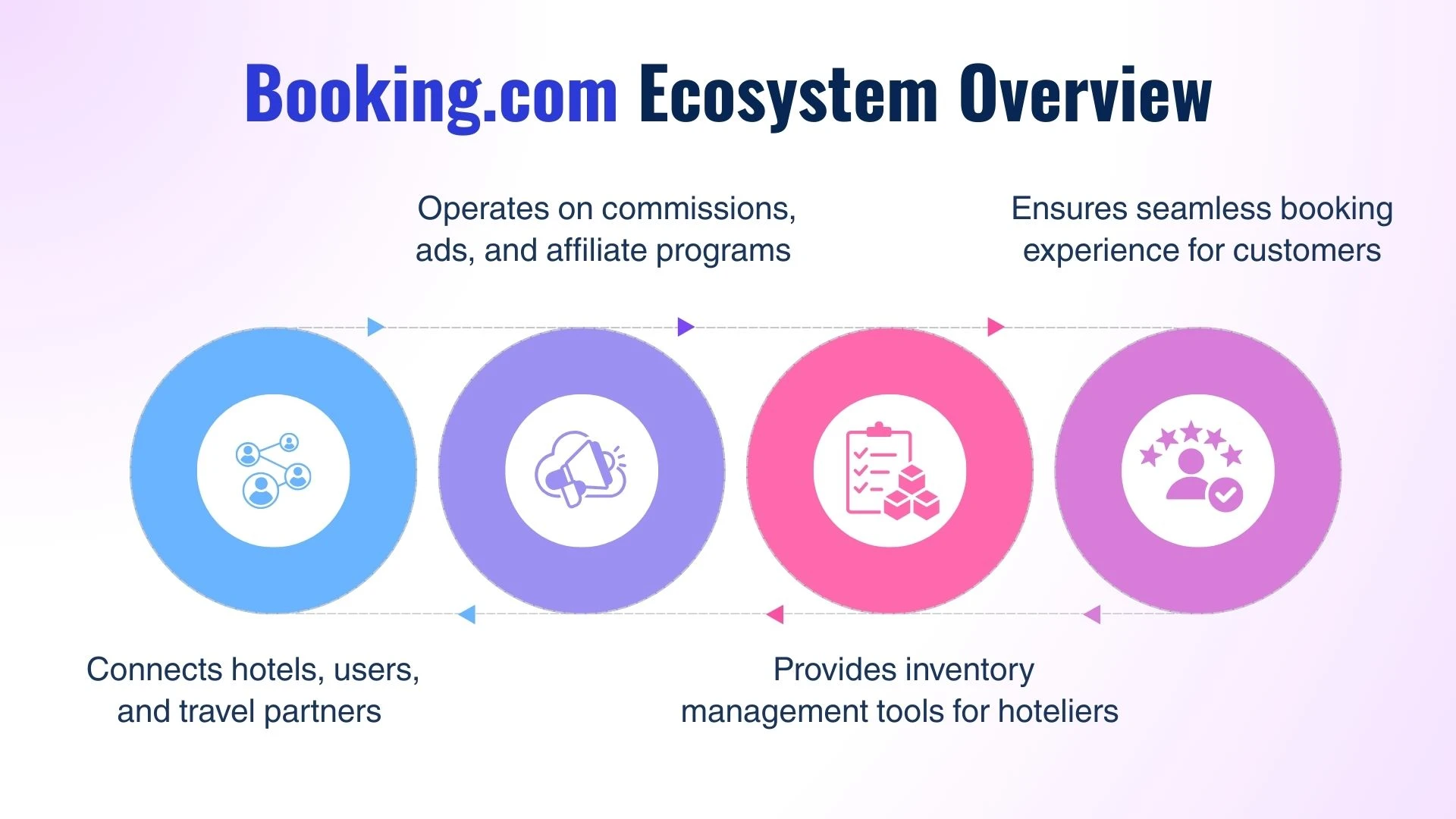
H3 - How Search Engines Use Meta Tags for Travel Listings?
Search engines like Google or Bing rely heavily on meta tags to understand, categorize, and rank travel content. Similarly, Booking.com optimizes its listings to ensure maximum discoverability and higher visibility in search results.
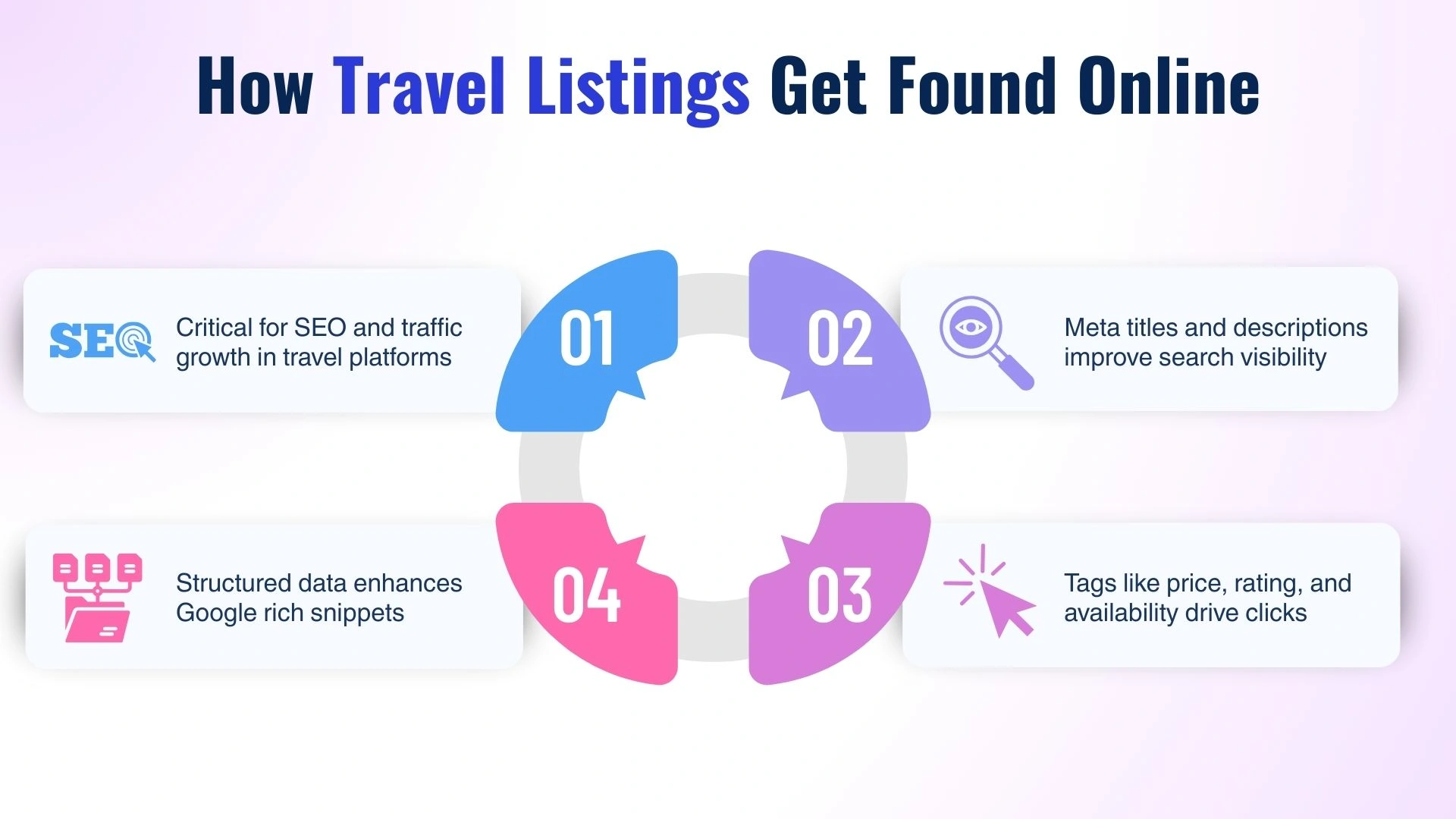
Key functions include:
- Communicate hotel names, locations, and amenities: Proper meta tagging ensures that potential travelers quickly understand what a property offers, improving Search Results Views and click-through rates.
- Assist with SEO for booking flights through booking.com: Well-structured meta tags help the platform appear prominently for both hotel and flight searches, enhancing conversion rates.
- Improve indexing in global travel distribution systems: Accurate metadata ensures that listings are correctly cataloged across multiple partner platforms and OTAs, maximizing exposure.
- Support AI-driven AI Trip Planner integrations: Metadata enables advanced tools like AI Trip Planner to recommend personalized itineraries and tailored travel options efficiently.
Importance of Performance Testing for Booking.com Systems
For a global platform like Booking.com, performance testing along with API testing is essential to maintain smooth operations across millions of searches and bookings daily. Even a delay of a few seconds can negatively affect conversion rates, reduce listing views, and lower overall Search Rank on competitive travel platforms. Travelers expect instant results, and any bottleneck can push them to alternative Online Travel Agencies, impacting both customer trust and business revenue.
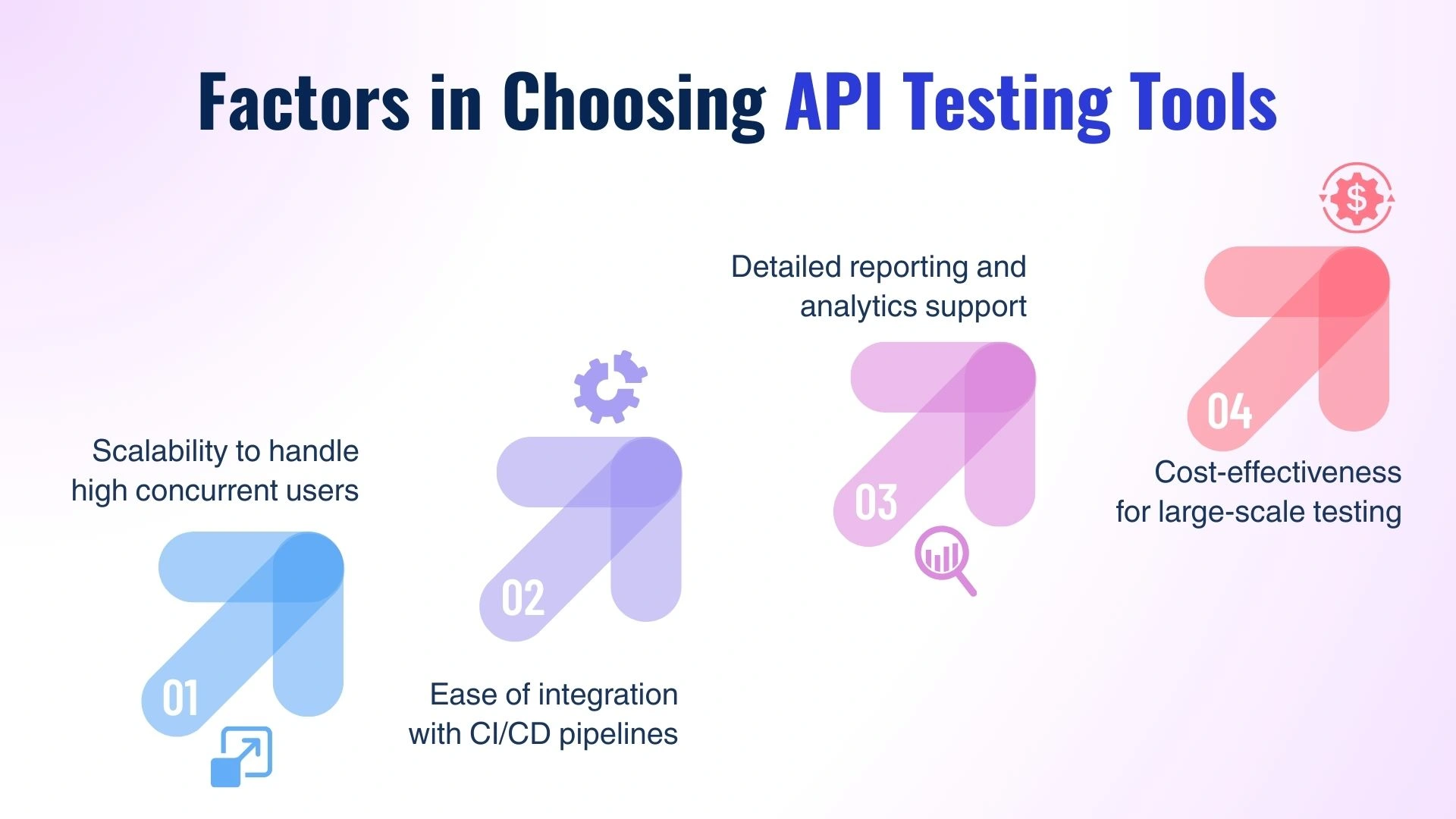
To counter this, QA teams rely on continuous monitoring of critical data points such as Net ADR (Average Daily Rate), Net RevPAR (Revenue per Available Room), and the Property Performance Score. These indicators help partners and Booking.com measure profitability, optimize pricing, and track the effectiveness of performance improvements. The ability to analyze these metrics under real-time conditions ensures that both customers and hotel partners achieve consistent and better revenue outcomes.
- Conversion rates depend heavily on fast, reliable search experiences and frictionless checkout flows.
- Metrics like Net ADR and Net RevPAR help determine long-term profitability and accurate revenue forecasting.
- Dynamic pricing and property ranking models must be tested under peak loads to ensure fairness and transparency in results.
- Features such as promotional badges and Search Results Views require consistent validation to maintain partner visibility in competitive markets.
H3 - Understanding Software and Network Performance Testing
Performance testing is critical for platforms like Booking.com, which handle millions of concurrent users and complex search queries worldwide. Both software performance testing and network performance testing are necessary to ensure system stability, fast response times, and seamless user experiences even under heavy traffic.
Key aspects include:
- Identifies bottlenecks in server response times: Performance testing pinpoints slow components, database delays, or inefficient APIs, helping engineers optimize system performance.
- Simulates real-world load using tools like JMeter performance testing and Locust performance testing: These tools mimic thousands of users performing searches, bookings, and checkouts simultaneously, ensuring that the platform can handle peak demand.
- Ensures uptime during peak seasons like holidays: Heavy travel periods can see exponential spikes in traffic; performance testing guarantees that the platform remains available and responsive.
- Improves software testing life cycle planning: By incorporating load testing and network simulations early, QA teams can better schedule regression testing and maintain system reliability.
- Prevents lost revenue: In travel tech, even a few seconds of delay can result in abandoned bookings, lower conversion rates, and decreased listing views, directly impacting partner profitability.
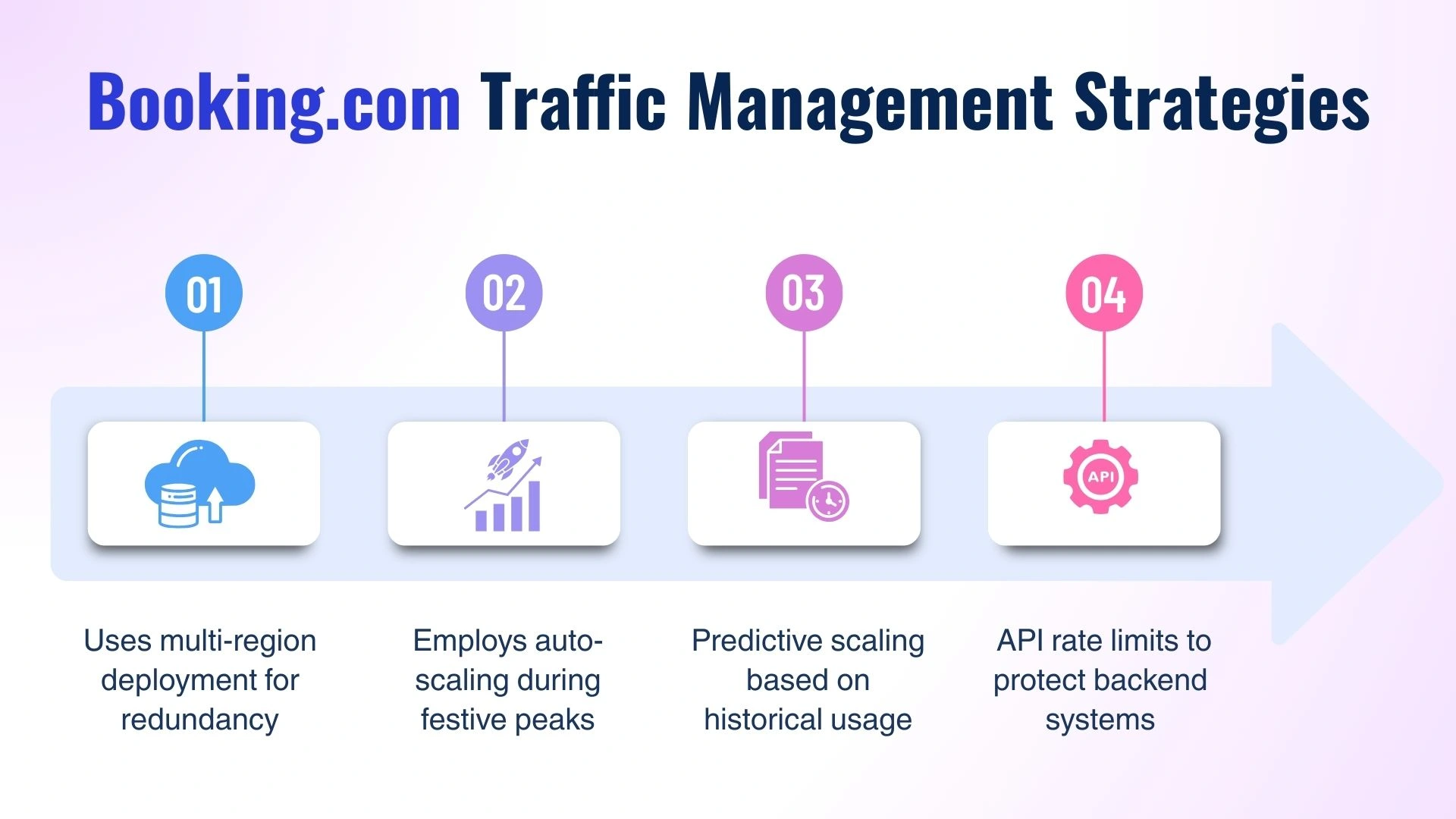
Role of QA Engineers in Travel Tech
QA engineers play a crucial role in ensuring Booking.com remains reliable and efficient for millions of travelers worldwide. Their work spans test cases, automated software testing, and QA automation services, making sure every feature performs seamlessly under real-world conditions.
Key responsibilities include:
- Write and validate functional and regression test cases: QA engineers design comprehensive test scenarios that verify both new features and existing functionality, preventing disruptions in core workflows.
- Use tools like Jira software testing tool for bug tracking: Efficient bug tracking ensures that issues are documented, prioritized, and resolved quickly, maintaining system stability.
- Perform QA testing across devices and networks: With users accessing Booking.com from various environments, QA engineers ensure consistent performance across all platforms.
- Collaborate with developers to improve system reliability: Continuous feedback loops help developers optimize code, enhance conversion rates, and maintain high listing views.
- Ensure end-to-end functionality: QA testers confirm that every critical process, from search and booking to payment and confirmation, works flawlessly.
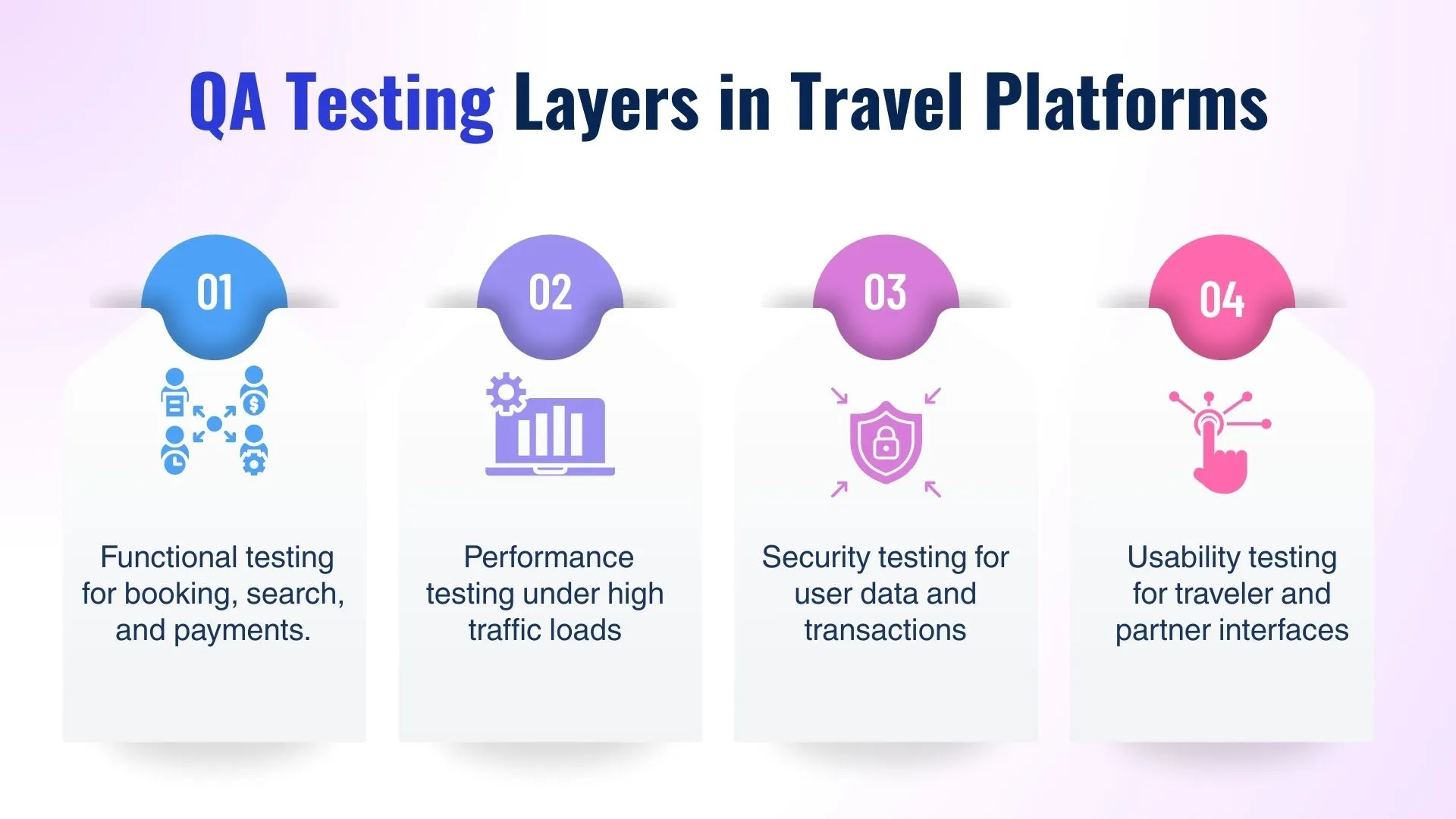
Impact on User Experience and Customer Retention
The performance of a travel platform directly impacts user experience and customer retention. Even minor downtime can reduce the conversion rate, as users quickly abandon slow or unreliable systems in favor of competitors. A seamless, responsive, and stable platform builds loyalty by ensuring smooth searches, quick comparisons, and hassle-free bookings. Over time, this reliability strengthens customer retention and reinforces trust, making performance a key driver of both user satisfaction and long-term business growth.
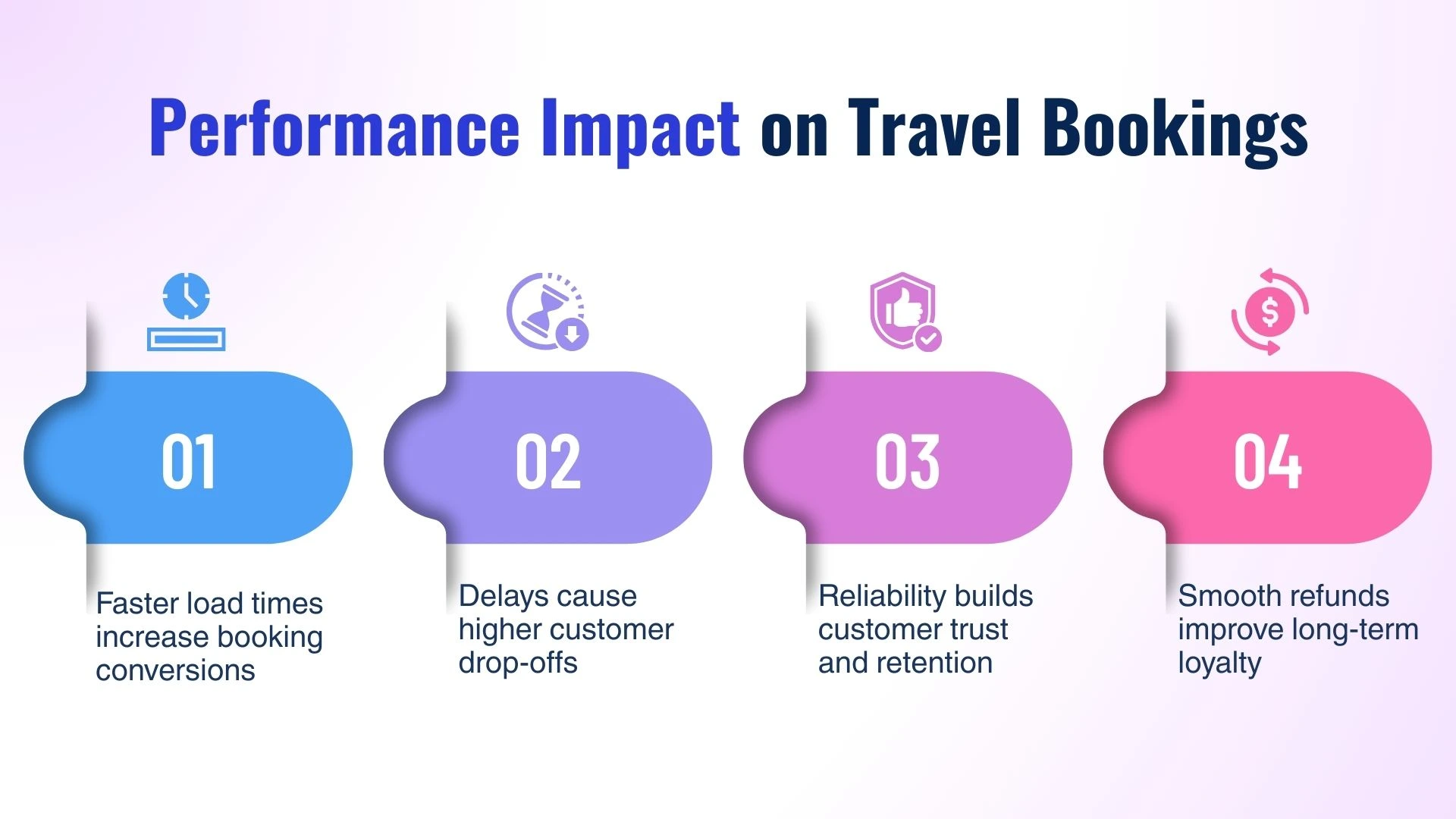
Tools and Techniques for Effective Meta-Search Performance Testing
To keep up with high traffic and complex search requests, Booking.com relies on advanced tools for performance testing and modern QA practices. Frameworks like JMeter performance testing and Locust performance testing simulate thousands of users, ensuring the system can handle heavy loads while maintaining fast response times. Beyond simple stress testing, engineers also validate conversion rates, listing views, and Search Rank Position under different traffic conditions.
JMeter and Locust for Load Testing
Load testing tools like JMeter and Locust are industry standards for simulating traffic and ensuring platform stability.
Key features include:
- JMeter performance testing evaluates backend response under high load: It measures response times, throughput, and resource utilization, helping QA teams identify performance bottlenecks.
- Locust performance testing uses Python scripts for flexible traffic scenarios: Developers can simulate complex, realistic user behaviors to stress-test APIs, search engines, and booking workflows.
- Both tools identify server crashes, API slowdowns, and bottlenecks: Early detection prevents system outages during peak travel periods.
- Provide insights into infrastructure scaling: Test results inform decisions about distributed cache, Kubernetes clusters, and cloud resources to ensure smooth scaling.
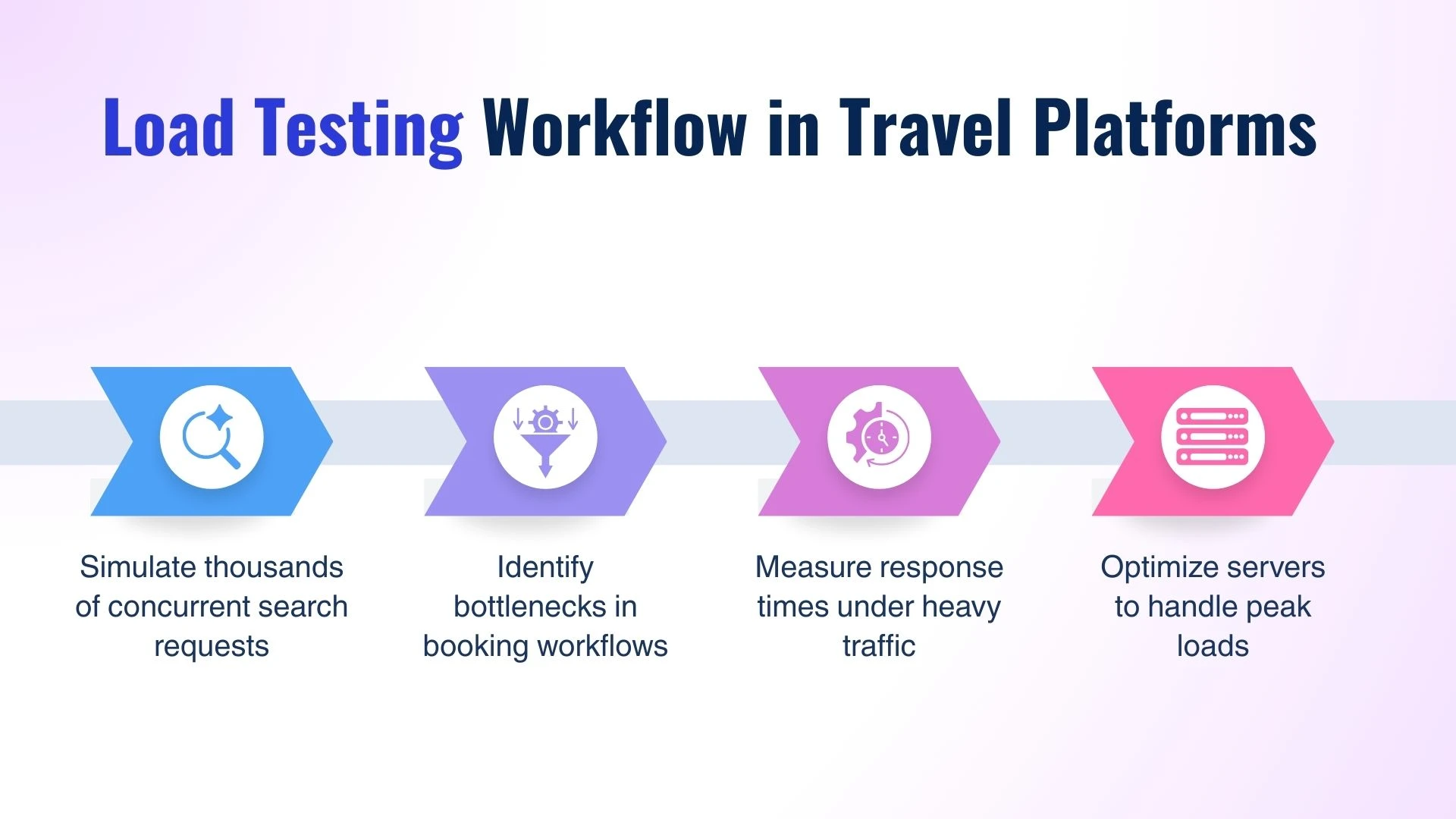
Automated Software Testing and Regression Testing
Automation is a cornerstone of the software testing life cycle, especially for large-scale travel platforms.
Key benefits include:
- Automated software testing reduces human errors and saves time: Repetitive test cases can be run consistently, freeing QA teams to focus on complex scenarios.
- Software regression testing ensures new updates don’t break existing features: Critical workflows like search, booking, payments, and promotional code applications remain stable.
- Increases coverage of critical workflows: Automation allows comprehensive testing across multiple devices, browsers, and network conditions.
- Enables continuous integration and deployment: Frequent updates can be released without compromising system reliability or user experience.
Using AI in Software Testing for Travel Platforms
Integrating AI in software testing introduces intelligent automation, predictive analytics, and smarter QA processes for complex travel platforms like Booking.com.
Key innovations include:
- Artificial Intelligence detects anomalies in test cases: AI identifies irregular patterns, potential bugs, and system vulnerabilities more accurately than traditional methods.
- Generative AI helps design smarter QA automation services: It can create adaptive test scripts that evolve with changing software environments.
- Predictive analytics supports the AI cycle for bug detection: Anticipates system failures before they impact users, improving reliability.
- Faster model inference from ML models improves detection: Advanced ML models accelerate the testing process, making it more efficient.
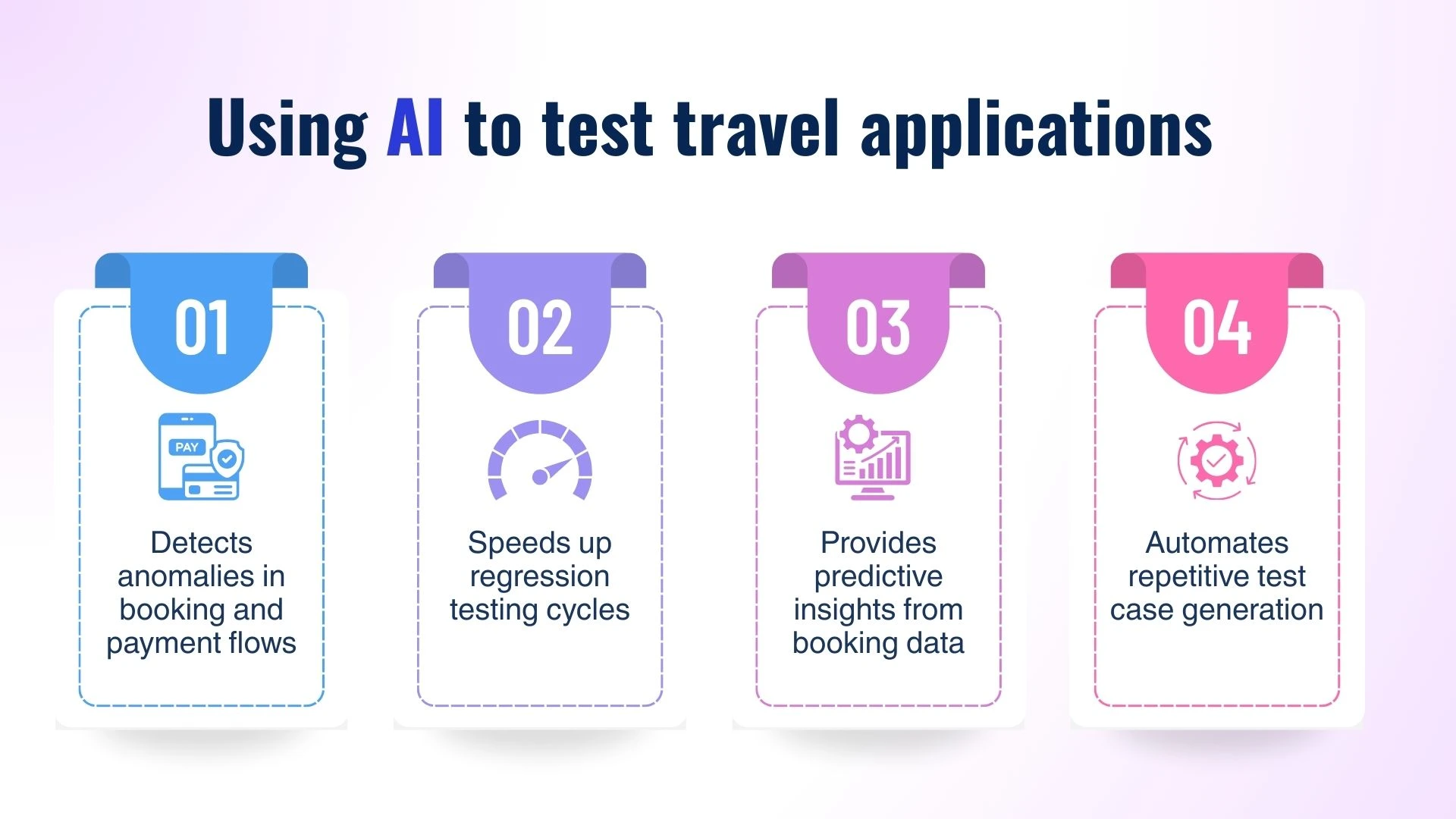
Best Practices for Testing Booking.com Extranet and Services
The Booking.com Extranet is the backbone for property owners, allowing them to manage availability, pricing, and promotions. Testing this system requires best practices that balance net Average Daily Rate (ADR), Search Results Views, and partner revenue management workload while ensuring smooth guest experiences. Since the extranet directly influences property ranking and revenue outcomes, performance and functional QA become mission-critical.
Testing the Extranet Portal
The Booking.com Extranet Portal is essential for hotel partners to manage availability, pricing, and promotions effectively. Ensuring its stability is critical for maintaining smooth operations and partner trust.
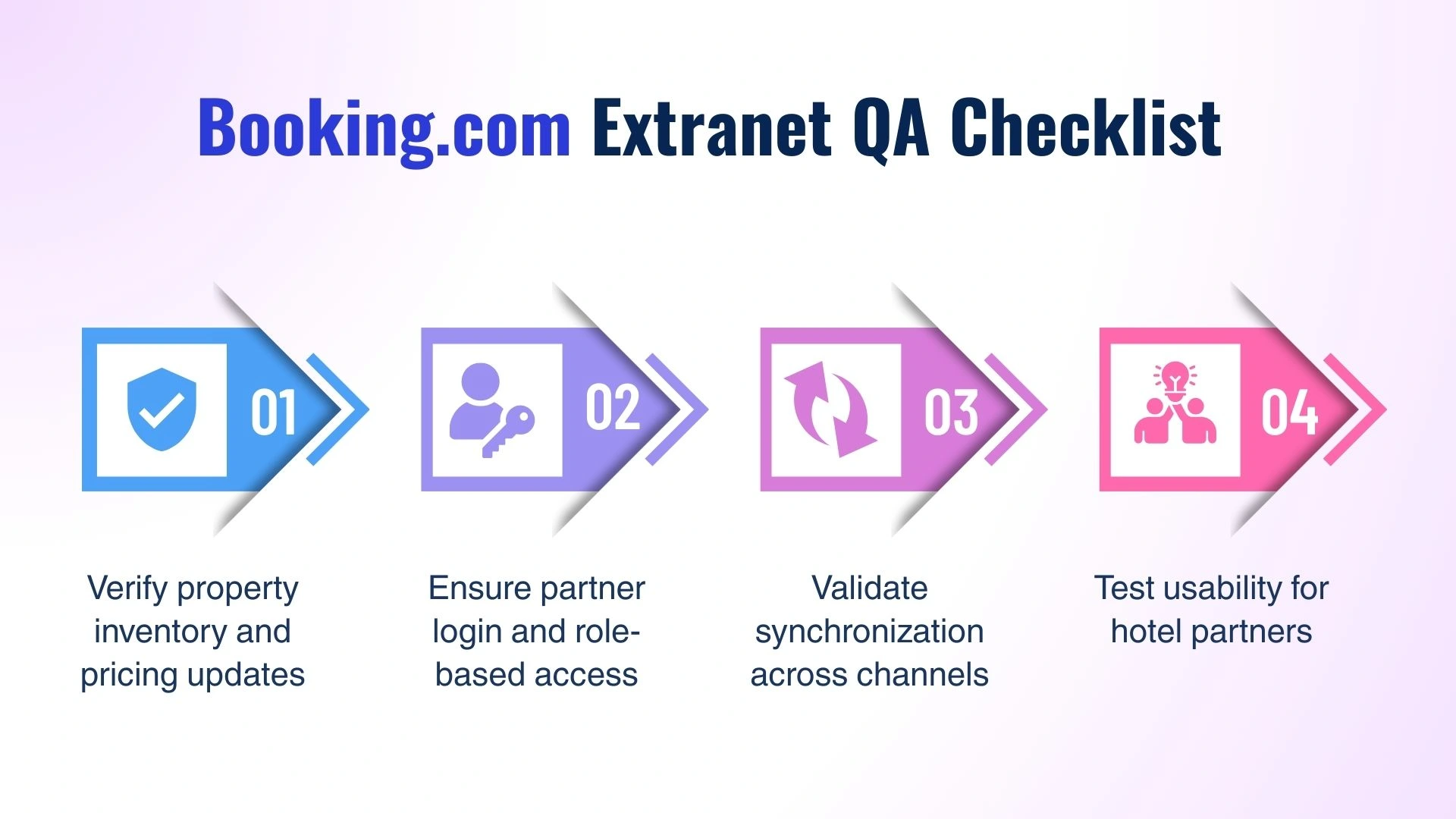
Key testing practices include:
- Load testing for hotel partners logging in simultaneously: Simulating multiple concurrent logins ensures the portal can handle high traffic without slowdowns or crashes.
- Functional validation of availability updates: QA engineers verify that changes in inventory, pricing, or promotions are accurately reflected in real time.
- Monitoring extranet insights and reporting accuracy: Regular checks confirm that metrics like listing views, booking trends, and revenue reports are reliable.
- Usability testing for global partners facing language barriers: The portal must remain intuitive and accessible for partners worldwide, supporting localization and inclusivity.
Optimizing Promo Codes and Deals for High Traffic
During peak events, booking.com promo codes and discount codes generate significant traffic spikes. Proper testing is crucial to maintain performance and maximize conversion rates.
Key strategies include:
- Stress testing for seasonal sales and campaigns: Simulating high volumes of concurrent users ensures the platform remains responsive under peak loads.
- Ensuring accurate application of booking.com deals: Validating that discounts, promo codes, and special offers are applied correctly to bookings prevents errors and maintains partner trust.
- Monitoring the Genius Deal performance at scale: Testing the system’s ability to handle large-scale loyalty perks ensures uninterrupted access for users.
- Preventing downtime during high-demand events: By identifying potential bottlenecks, the team guarantees that users can access offers smoothly, improving overall listing views and revenue outcomes.
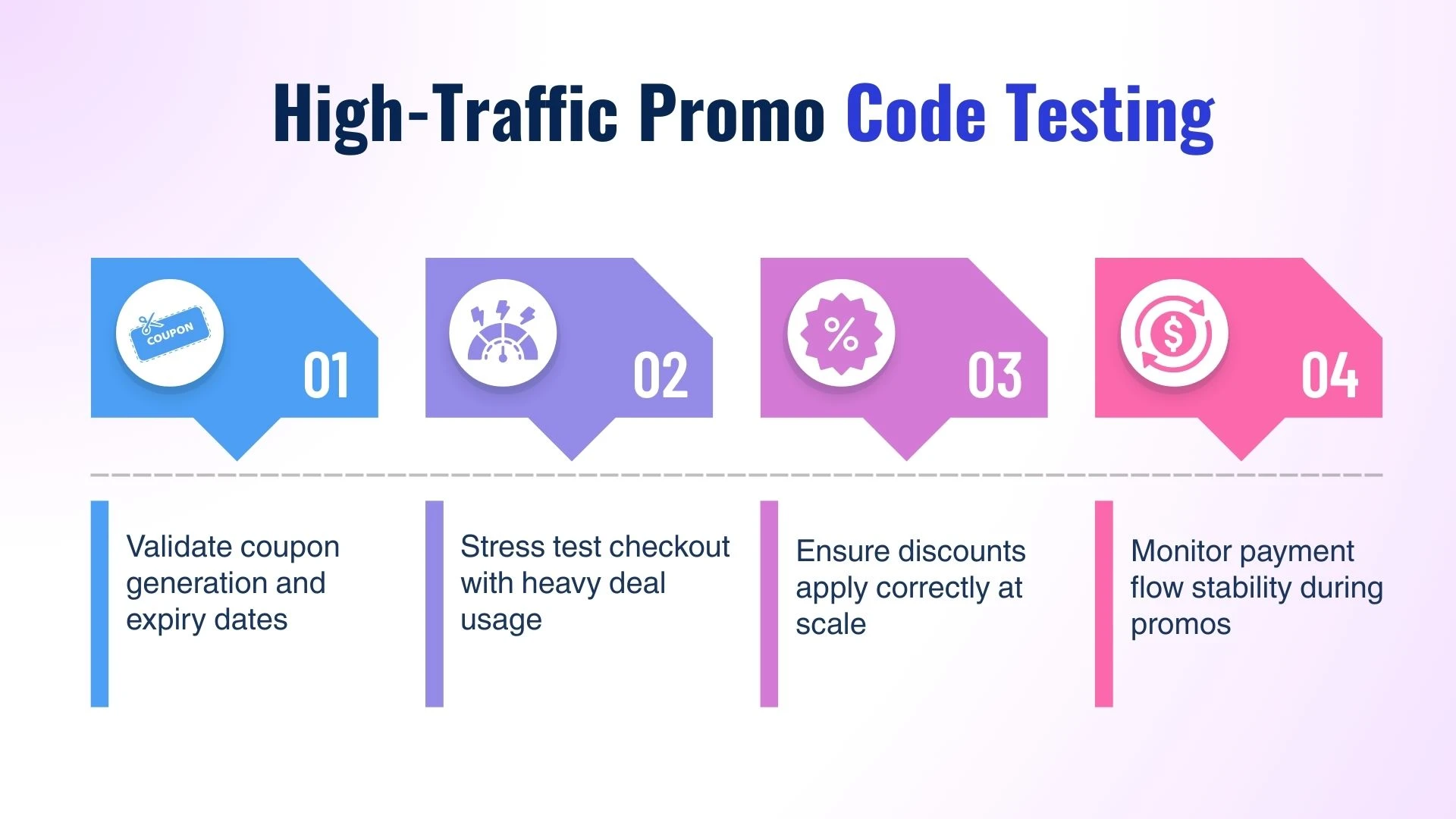
This approach ensures customers enjoy a seamless experience while partners benefit from optimal revenue management.
Performance Metrics to Monitor
Booking.com tracks multiple performance indicators to ensure reliability and continuously improve its services.
Key metrics include:
- Response time and server uptime: Ensures searches, bookings, and payment processes remain fast and stable.
- Error rates during peak bookings: Monitors failed transactions or booking errors that could impact conversion rates.
- API latency for third-party integrations: Verifies that hotel systems, airlines, and other partners remain in sync without delays.
- Customer feedback from booking.com reviews: Provides insights into real-world experiences, helping QA teams identify areas for improvement.
Monitoring these metrics allows Booking.com to maintain high-quality services, optimize partner revenue, and enhance the overall user experience across its platform.
Common Challenges and Solutions in Travel Meta-Search Testing
Travel meta-search platforms, such as Booking.com, operate in a fast-paced and highly dynamic environment. Ensuring seamless user experience requires rigorous testing to handle high traffic, complex integrations, and diverse user needs.
Travel platforms like Booking.com face unique challenges in testing.
Future Trends in Meta-Search and Performance Testing
The future of travel meta-search is shaped by Artificial Intelligence and generative AI.
- AI Trip Planner tools will personalize recommendations
- Recommender systems will evolve with Factorization Machines and Gradient Boosted Trees
- Frameworks like Vowpal Wabbit will power faster model inference
- AI in cloud-based test automation services will optimize the software testing life cycle
- Harvard Business Review highlights that data warehouse strategies will improve revenue management
As meta-search grows, Booking.com is likely to lead innovation in AI adaptive learning and AI-driven test automation services.
Conclusion
From booking flights through booking.com to applying promo codes or redeeming discount codes, travelers benefit from fast, dependable service, accurate availability, and ultra-personalized travel recommendations. The integration of ML models, recommender systems, and qa automation services enables predictive insights, dynamic pricing optimization, and intelligent travel itinerary planning, all while maximizing partner revenue through metrics.
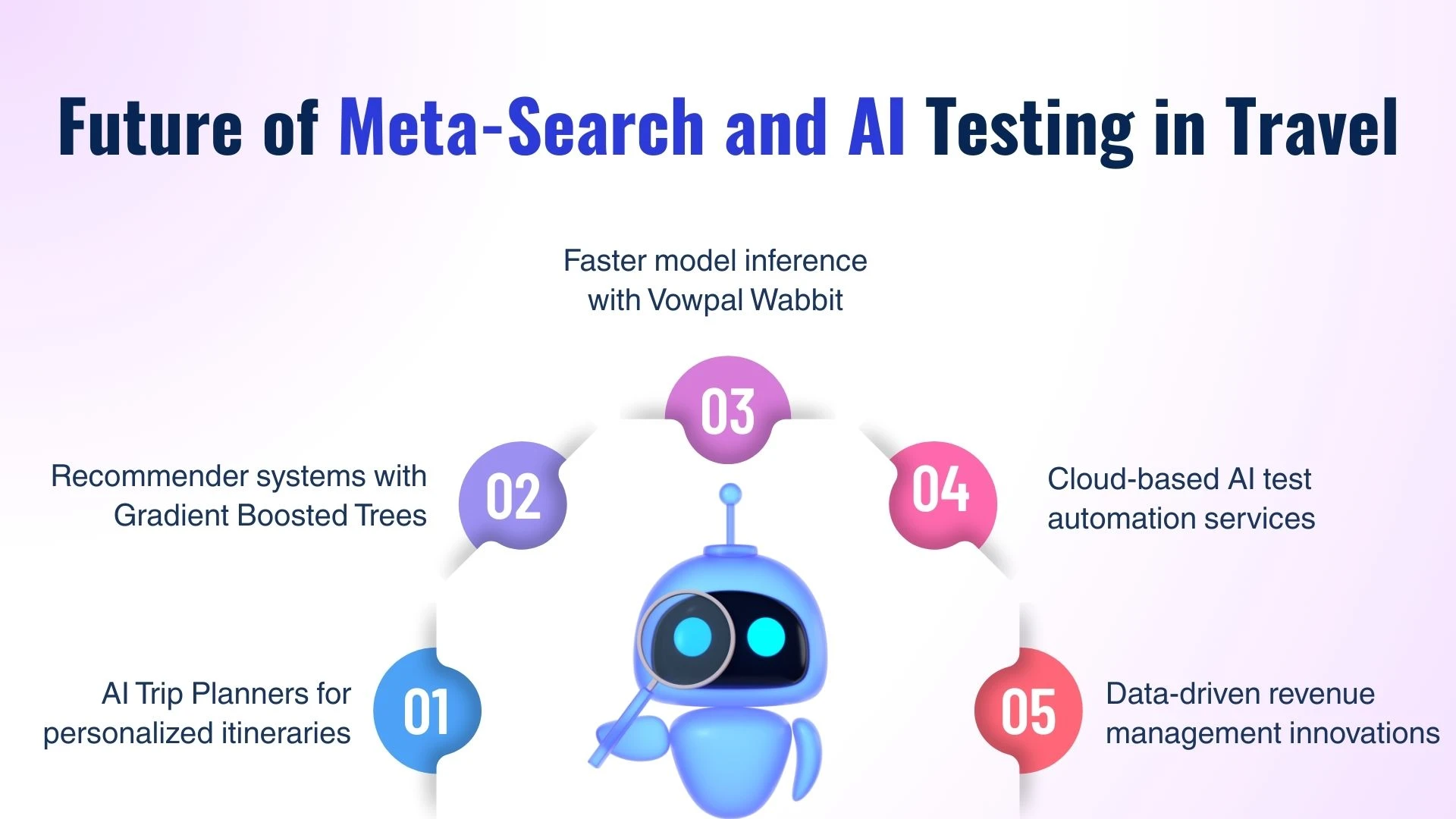
Moreover, Booking.com’s focus on conversion rates, Search Results Views, and partner-facing tools like the Booking.com Extranet ensures that hotel partners and travel providers can efficiently manage inventory, pricing, and promotions. Coupled with generative AI, AI Trip Planner integration, and advanced AI-enabled marketing campaigns, the platform not only drives higher engagement and bookings but also sets new standards for the future of travel tech.
Booking.com’s continued success in the travel industry stems from its strategic balance of meta-search capabilities, AI-powered insights, and rigorous software performance testing. By investing in skilled QA engineers, comprehensive test cases, automated software testing, and advanced AI software testing tools, the platform ensures a seamless, reliable experience for millions of users worldwide.
To complement such governance and compliance strategies, organizations also rely on robust software quality assurance practices. Frugal Testing is a leading SaaS application testing company known for its AI-driven test automation services. Among the services offered by Frugal Testing are cloud-based test automation services that help businesses improve testing efficiency, ensure software reliability, and achieve cost-effective, high-quality product delivery.
FAQs
What is the most accurate search engine in the world?
Currently, Google is considered the most accurate search engine due to its advanced algorithms, though specialized platforms like Booking.com offer more accuracy for travel-related queries.
What is the most powerful AI search engine?
The most powerful AI search engines use large language models and generative AI. Tools like Perplexity AI and Bing with ChatGPT integrate Artificial Intelligence for better results.
Is Google a meta search engine?
No, Google is not a meta search engine. It is a general search engine. Meta-search engines like Booking.com aggregate results from multiple sources.
What is SearXNG?
SearXNG is an open-source meta search engine that aggregates results from multiple search engines while protecting user privacy.
What is the use of meta search in travel distribution?
Meta search helps travelers compare hotel and flight prices across multiple Online Travel Agencies, improving booking efficiency and increasing conversion rate.





%201.webp)
